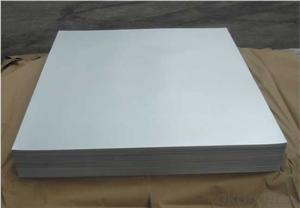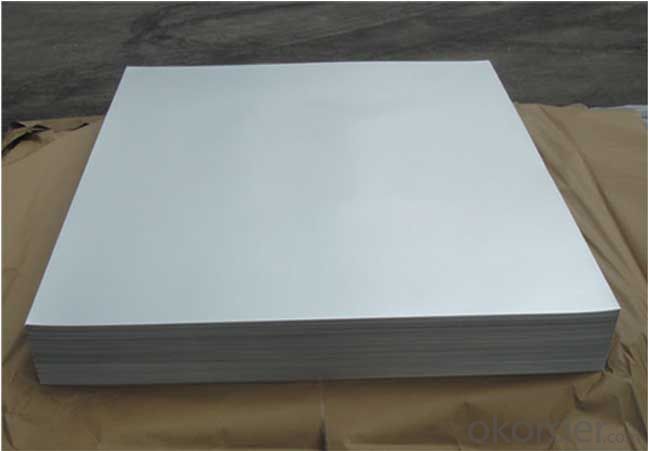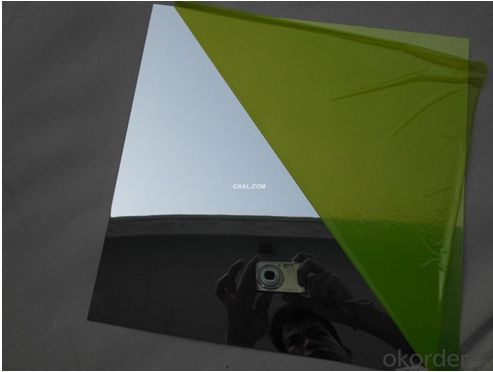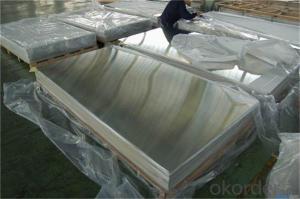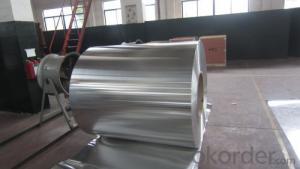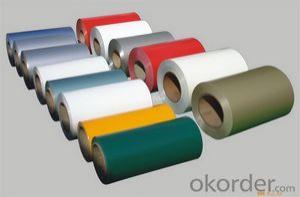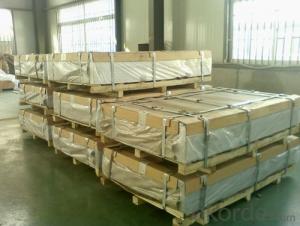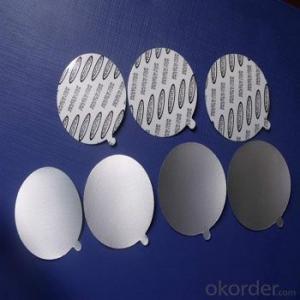Customized 3003 Aluminum Coil - Aluminium /Aluminio /Alumina Sheet 1050 1060 1100 3003 3105 5005 5052 5754 5083 6061 6082
- Loading Port:
- Shanghai
- Payment Terms:
- TT OR LC
- Min Order Qty:
- 5 m.t.
- Supply Capability:
- 10000 m.t./month
OKorder Service Pledge
OKorder Financial Service
You Might Also Like
Specification
1.Structure of Aluminum Sheet Description:
Construction material with good ductility, polishing ability and corrosion resistance, good electrolytic oxidation, suitable for welding. Have good plasticity qualities in an annealed state suitable when hardened.
2.Main Features of Aluminum Sheet:
Good Ductility
Polishing Ability and Corrosion Resistance
High Quality
Competitive Price
3. Aluminum Sheet Images:
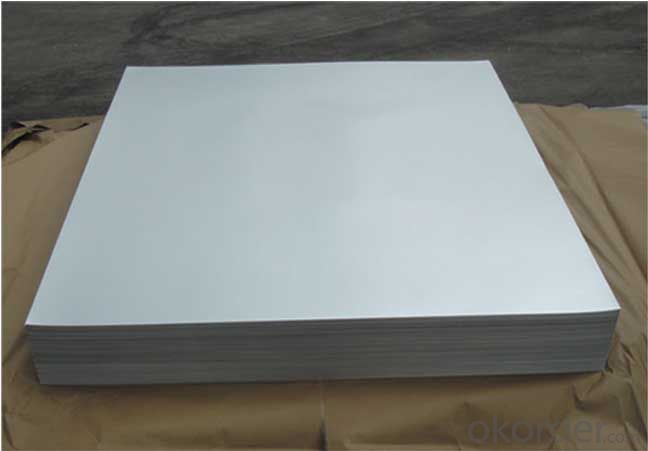
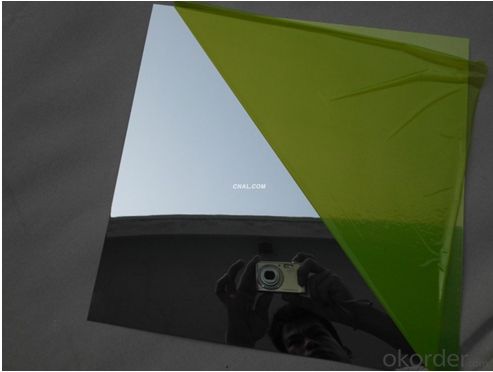
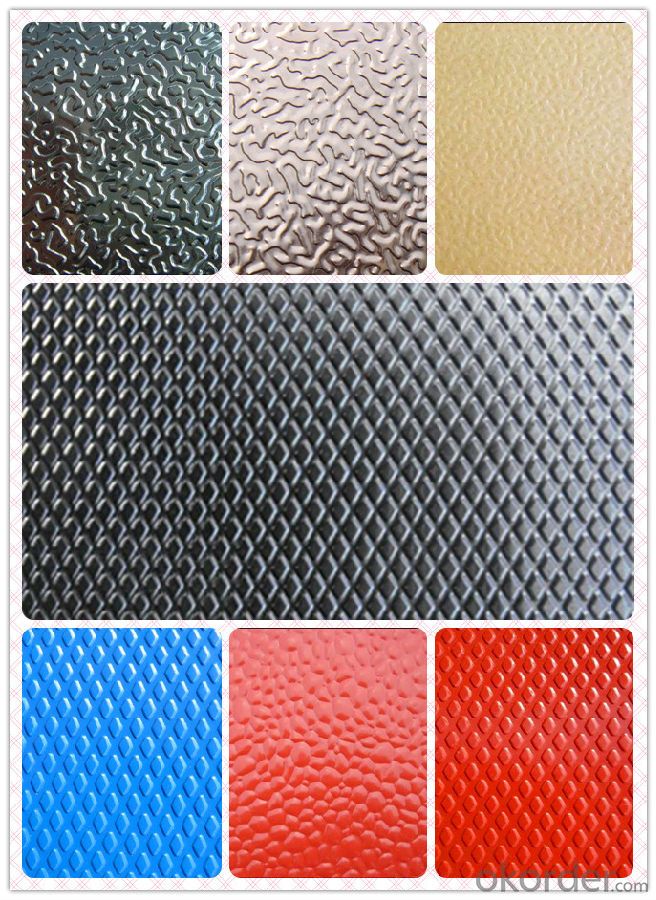
4. Aluminum Sheet Specification:
| Aluminium Alloy | Thickness (mm) | Width (mm) | Length (mm) | Temper | |
| A1050,A1060,A1070,A1100 | 0.15-200 | 20-2620 | 20-8000 | O,H12,H14,H16,H18,H22,H24,H26 | |
| A3003,A3004,A3105 | 0.15-200 | 20-2620 | 20-8000 | O,H12,H14,H16,H18,H22,H24,H26 | |
| A5052,A5005,A5083,A5754 | 0.15-200 | 20-2620 | 20-8000 | O,H12,H14,H34,H32,H36,H111,H112 | |
| A6061,A6082,A6063 | 0.15-200 | 20-2620 | 20-8000 | T4,T6,T651 | |
| A8011 | 0.15-200 | 20-2620 | 20-8000 | O,H12,H14,H16,H18,H22,H24,H26 | |
| Material process | CC AND DC | ||||
| Customerize size | Size can be produced as per clients requirement | ||||
| Surface | Mill finish ,Color coated(PVDF& PE),Stucco Embossed ,Bright Polish,Anodizing | ||||
| Mirror,Brush,Perforated,Tread plate ,Corrugated etc | |||||
| Quality Standard | ASTM B209,EN573-1 | ||||
| MOQ per size | 2 tons | ||||
| Payment Terms | TT OR LC OR DP at sight | ||||
| Delivery time | Within 25 days after receipt the lc or deposit | ||||
| Material Quality | Tension levelled ,flat ,Free of defects like oil stain,Roll Marks,Waves,Dents | ||||
| scratches etc ,A+++ quality, production process passed sgs and bv inspection | |||||
| Application | Construction ,Building,Decoration ,Curtain Wall ,Roofing,Mould,Lighting, | ||||
| curtain wall, ship building,Aircraft,Oil Tank ,Truck Body etc | |||||
| Packing | Standard export worthy wooden pallets,and standard packing is about 2 tons/pallet | ||||
| Pallet weight also can be as per client's requirement | |||||
5.FAQ
Q1.How long have you been in this product?
A1:More than 10 years.
Q2. What's the minium quantity(MOQ)?
A2. 5 Metric tons
Q3. How long is shipping time?
A3. 7 (ready-made products)-25 days(OEM)
Q4. How do you guarantee the quality?
A4. 1. Cooperating and Exchaning experience with sevral quoted aluminum companies
2. Japanese and Swiss production line and skilled works (regular training and testing)
3. more than 10 years production experience.
Q5. Do you have after sale service?
A5. Yes. Any quality problem occurs within one year, pls take photoes,we will be responsible.
- Q: Is it possible to use a soldering iron to join aluminum coil with solder?
- <p>Traditional soldering irons are not suitable for soldering aluminum coils because aluminum does not readily bond with common solders used for irons. Aluminum has a high oxide layer that forms quickly, which prevents the solder from adhering. Specialized aluminum solder or fluxes are required for this task, and even then, the process might not be as effective as with other metals. For aluminum, brazing or welding techniques are often more appropriate.</p>
- Q: What is the maximum temperature aluminum coils can withstand?
- The maximum temperature that aluminum coils can withstand depends on several factors, including the specific alloy of aluminum and the intended application of the coils. Generally, aluminum has a melting point of around 660 degrees Celsius (1220 degrees Fahrenheit). However, aluminum coils used in various industries such as HVAC (heating, ventilation, and air conditioning) systems and electrical appliances are typically designed to operate within a temperature range of -30 to 150 degrees Celsius (-22 to 302 degrees Fahrenheit). These temperature limits ensure that the aluminum coils maintain their structural integrity and do not experience any significant degradation or damage. It is important to consult the manufacturer's specifications or guidelines for the specific aluminum coils in question to determine their maximum temperature tolerance.
- Q: How are aluminum coils protected against oxidation?
- Aluminum coils are protected against oxidation through various methods such as applying a protective coating, anodizing the surface, or using a combination of organic and inorganic coatings. These protective measures act as barriers to prevent direct contact between the aluminum coils and oxygen, thereby reducing the risk of oxidation and corrosion.
- Q: What are the common testing methods for aluminum coils?
- To ensure the quality and performance of aluminum coils, various testing methods are utilized. These methods encompass: 1. Visual inspection: A comprehensive examination of the coils is conducted to identify any visible defects like dents, scratches, or surface irregularities. This serves as an initial and fundamental step in the testing process. 2. Dimensional measurement: The dimensions of the aluminum coils are measured to verify if they meet the specified requirements. This involves assessing the length, width, and thickness of the coils. 3. Tensile testing: The mechanical properties of the aluminum coils, such as strength and elasticity, are evaluated through tensile testing. This procedure entails applying a tensile force to a sample of the coil until it fractures or deforms, enabling the determination of its tensile strength. 4. Hardness testing: The suitability of aluminum coils for specific applications is determined by assessing their hardness. Various methods, such as Rockwell or Brinell hardness tests, are employed to measure the coil's surface resistance to indentation or scratching. 5. Chemical composition analysis: The chemical composition of the aluminum coil is analyzed to ensure it meets the required specifications. Common techniques used for this analysis include spectroscopy or X-ray fluorescence (XRF) analysis. 6. Corrosion resistance testing: Due to exposure to harsh environmental conditions, it is crucial to assess the resistance of aluminum coils to corrosion. Tests such as salt spray testing or electrochemical impedance spectroscopy (EIS) are conducted to determine the coil's ability to withstand corrosion. 7. Coating quality assessment: If the aluminum coil is coated with a protective layer, testing methods such as adhesion testing, coating thickness measurement, or impact resistance testing are employed to ensure the quality and durability of the coating. These testing methods are commonly employed for aluminum coils. By conducting these tests, manufacturers can guarantee that the coils meet the required standards and perform optimally in their intended applications.
- Q: i know aluminum nitrate will dissociate, and also that there is no way that the nitrate will react to make the solution basic or neutral. But what about the aluminum ion? Does it take OH- from water to make [Al(OH)4]- and make the solution acidic? Does it somehow take protons and make a basic solution? My teacher said its not neutral, so I'm leaning towards an acidic solution. Thanks!
- Aluminum nitrate is the salt produced by the reaction of aluminum hydroxide and nitric acid. Nitric acid is a strong acid. Aluminum hydroxide is a realtively weak base. So the salt will be acidic.
- Q: Hello, I'd like to ask you a question. Can the aluminum coil be continuously pressed and cooled by kerosene?
- Yes, water and oil are not miscible. They must be emulsified
- Q: How are aluminum coils shipped and transported?
- Aluminum coils are typically shipped and transported using various modes of transportation such as trucks, trains, and ships. They are usually wrapped in protective packaging, such as plastic or wood, to prevent damage during transit. The coils are loaded onto pallets or specialized carriers, secured with straps or bands, and then placed in shipping containers or onto flatbed trucks for transportation. The chosen mode of transport depends on the distance to be covered and the specific requirements of the shipment.
- Q: I wrap everything with aluminum foil and bake it in the oven -- fish, meat, vegetables. Is this really safe? Or safe when done occasionally? Or should I find a new way?
- Perfectly safe. I think you must be referring to the great aluminum pots and pans debacle Whereupon, several researchers found trace amounts of aluminum in the brains of dead alzheimer patients so, ergo, ipso, facto, aluminum causes alzheimers and everyone tossed their aluminum cookware. It was subsequently found to be the testing lab, who was finding the trace amounts of aluminum in the brain tissue, that was responsible for tainting their own equipment with trace aluminum, thus, they were finding it in EVERYTHING they tested. I still think it was the aluminum cookware industries way of getting us all to buy new pans LOL.
- Q: How do aluminum coils compare to copper coils in terms of performance?
- Aluminum coils and copper coils serve as two commonly used types of heat exchanger coils within heating, ventilation, and air conditioning (HVAC) systems. Although both materials effectively transfer heat, they differ in terms of performance. Due to its superior heat transfer properties, copper coils have long been the favored option for HVAC systems. Copper possesses excellent heat conductivity, enabling efficient thermal energy transfer. Consequently, copper coils effectively cool or heat the surrounding air, resulting in quicker and more efficient temperature control. Conversely, aluminum coils exhibit lower heat transfer efficiency compared to copper coils. Aluminum proves to be a poorer heat conductor, necessitating a larger surface area to achieve the same level of heat transfer as copper. Consequently, aluminum coils tend to be larger in size to compensate for their inferior heat transfer capabilities. However, aluminum coils possess certain advantages over copper coils. Firstly, aluminum boasts a lightweight nature, facilitating easier handling and installation. This proves particularly beneficial in situations where weight restrictions or handling limitations are present. Secondly, aluminum coils display greater resistance to corrosion in comparison to copper coils. Copper is susceptible to corrosion over time, especially in environments with high humidity or exposure to specific chemicals. In contrast, aluminum naturally forms a protective oxide layer, which aids in corrosion prevention. This results in longer-lasting coils and a reduced likelihood of refrigerant leaks. In conclusion, while copper coils offer superior heat transfer capabilities, aluminum coils possess their own benefits, such as lighter weight and enhanced corrosion resistance. Ultimately, the choice between aluminum and copper coils depends on the specific requirements of the HVAC system, including desired performance, budget, and environmental factors.
- Q: How are aluminum coils used in the production of automotive parts?
- Aluminum coils play a crucial role in the production of automotive parts. Due to their lightweight and corrosion-resistant properties, aluminum coils are extensively used in the manufacturing of various automotive components. One of the main applications of aluminum coils in the automotive industry is in the production of body panels. These coils are processed into sheets, which are then formed and shaped into body panels such as hoods, doors, fenders, and roofs. The lightweight nature of aluminum helps to reduce the overall weight of the vehicle, resulting in improved fuel efficiency and better handling. Aluminum coils are also used in the production of heat exchangers for automotive air conditioning systems and radiators. The excellent thermal conductivity of aluminum allows for efficient heat transfer, ensuring optimal cooling performance. This helps to maintain the desired temperature in the vehicle's interior and prevent engine overheating. Additionally, aluminum coils are utilized in the production of various engine components. They are widely used in the manufacturing of cylinder heads, engine blocks, and intake manifolds. The high strength-to-weight ratio of aluminum makes it an ideal material for these applications, as it provides strength and durability while reducing the overall weight of the engine. Moreover, aluminum coils are used in the production of suspension components such as control arms and subframes. The lightweight nature of aluminum allows for better suspension performance, resulting in improved handling and a smoother ride. In summary, aluminum coils are extensively used in the production of automotive parts due to their lightweight, corrosion-resistant, and high-strength properties. They are employed in the manufacturing of body panels, heat exchangers, engine components, and suspension parts, contributing to the overall performance, efficiency, and durability of vehicles.
Send your message to us
Customized 3003 Aluminum Coil - Aluminium /Aluminio /Alumina Sheet 1050 1060 1100 3003 3105 5005 5052 5754 5083 6061 6082
- Loading Port:
- Shanghai
- Payment Terms:
- TT OR LC
- Min Order Qty:
- 5 m.t.
- Supply Capability:
- 10000 m.t./month
OKorder Service Pledge
OKorder Financial Service
Similar products
Hot products
Hot Searches
Related keywords
